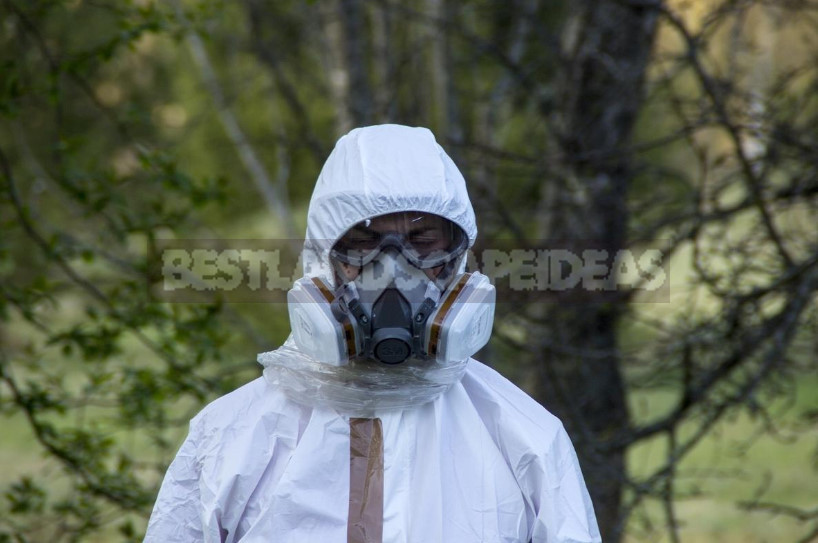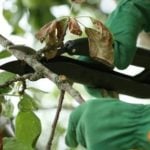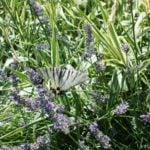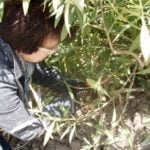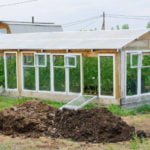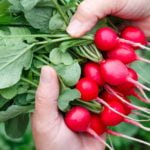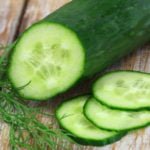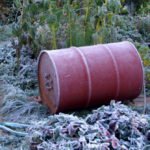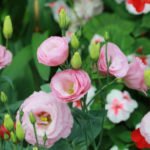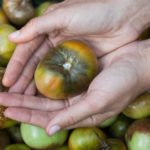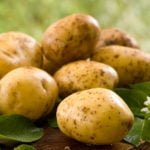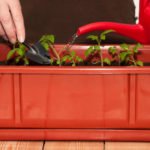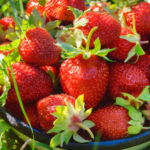Even if you are a staunch supporter of environmentally friendly gardening and do not recognize anything except vermicompost and spraying berry bushes infusion of shag, chemistry is everywhere nearby. Varietal seeds and seedlings, even in the nursery treated with stimulants; bait for moles and means of combating ants; compositions for the care of the pool and even hand creams – all this chemistry.
To be afraid of chemistry in the modern world is like being afraid of city air and tap water: no matter how many questions their composition raises, we do not stop breathing and washing. But if you trust the experience of the best gardeners in the world, without the achievements of chemistry, their success would be much more modest.
And yet the chemistry does not cease to be dangerous, and it is necessary to use it, observing quite strict rules.
Rule one: follow the storage rules
All chemicals for the garden and vegetable garden should be stored in one safe place under lock and key. You should always know the expiration date and opening date of the package.
Test yourself:
1. Where and how are all the substances that you use in your garden stored: fertilizers, insecticides, pesticides, growth regulators and ovary stimulants, etc.? Are they stored in a special locker and securely locked? Or scattered in the economic unit, and even in the kitchen?
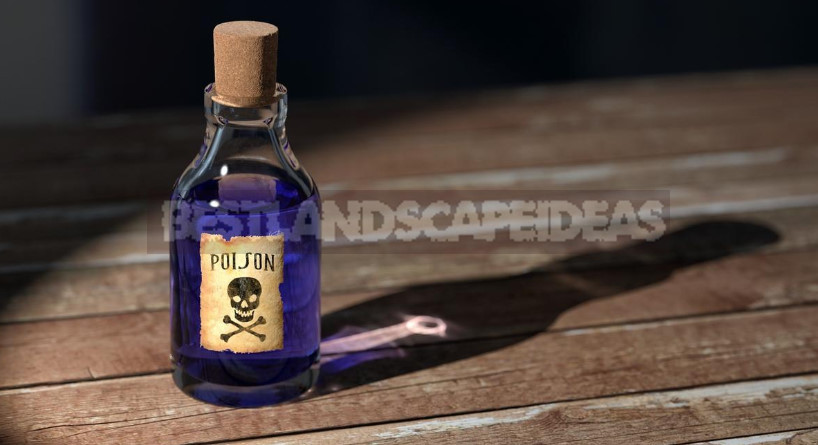
2. Whether you opened the packaging of such funds immediately or casually twist the bag with the remains, not even bothering to label it the date of the autopsy?
3. Is access to chemicals securely blocked for children and animals living in the country, or torn bag just lying on the windowsill?
Rule two: read and follow the instructions
Experienced growers, year after year repeating cycles of garden work, often rely on their memory, preparing solutions, making fertilizers, dosing chemicals. And in vain: first, you could first use another drug or fertilizer of the same action — its dosage, concentration of the solution, etc. may be different. Secondly, even well-known information tends to disappear from memory.
When starting work, always carefully read the instructions for use of any chemical, even if you know it by heart.
Rule three: take care of the means of protection
Fertilization, spraying and other plant treatments are recommended in windless weather. But even in the quietest day you are not guaranteed against a random gust of wind, incorrect movement of the hand.
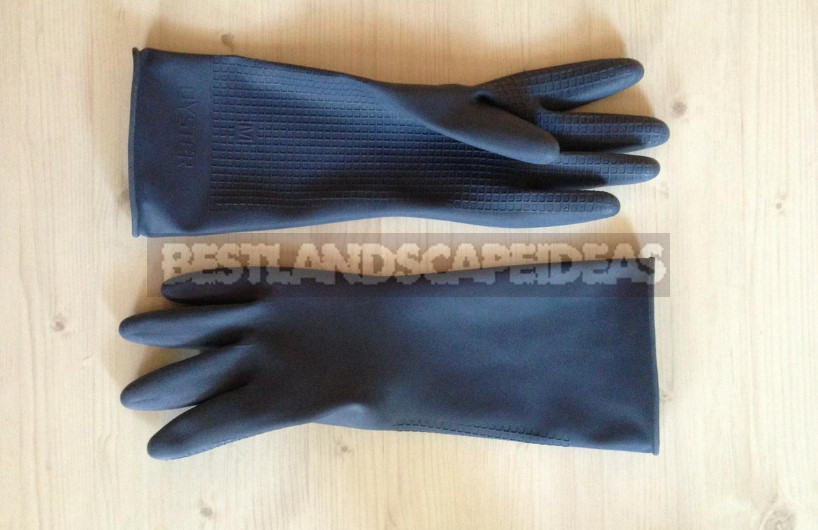
Therefore, when working with chemicals never forget about personal protective equipment – kerchief, respirator, rubber gloves.
Rule four: dispose of waste
Preparation of various solutions for treatment of plants, soil, seed etching, etc. should be carried out in accordance with the dosage. But often in the sprayer or bucket solution remains, and economical owners do not dispose of it, hoping to continue working later. In vain: not only that ready-made solutions are likely to quickly lose their properties in the oxidation of air — there is also the risk of accidentally spilling or spraying the solution. And imagine if children do it?
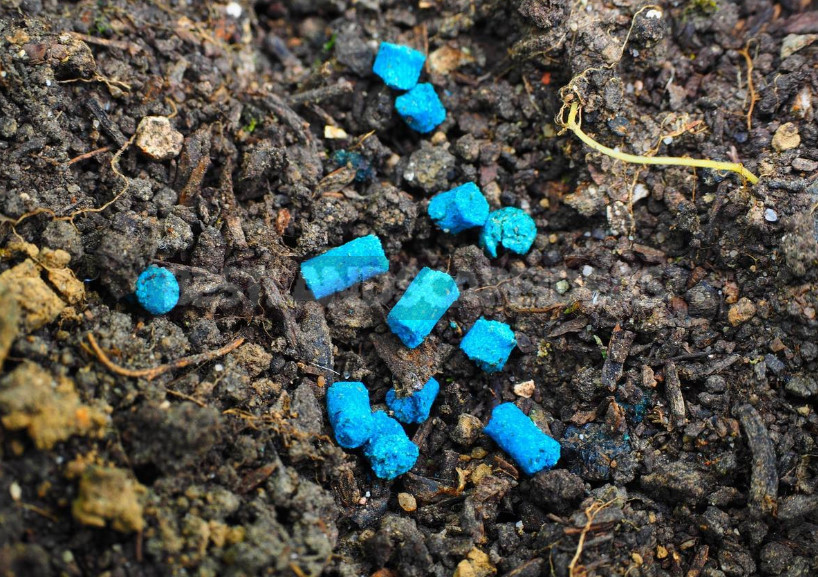
Take a secluded place in the garden to dispose of the remains of any chemical solutions that have not been used. Let it be a pit depth of not less than 1 metre, securely covered with a lid and is inaccessible to children and animals. Thoroughly wash any dishes in which solutions were prepared with water with the addition of soda ash. Water after washing, too, pour into the space provided. Wash and dry the gloves, do not forget to wash the kerchief from time to time, and dry the respirator.
Rule five: remember there is a risk of poisoning
Even if you strictly follow all these rules, there is always, albeit minor, the risk of accidental poisoning garden chemicals. Its symptoms are similar to any poisoning: nausea, vomiting, headache and abdominal pain, dizziness, loss of consciousness, etc. In these cases, it is necessary as soon as possible to deliver the victim to the nearest medical institution or call an Ambulance.
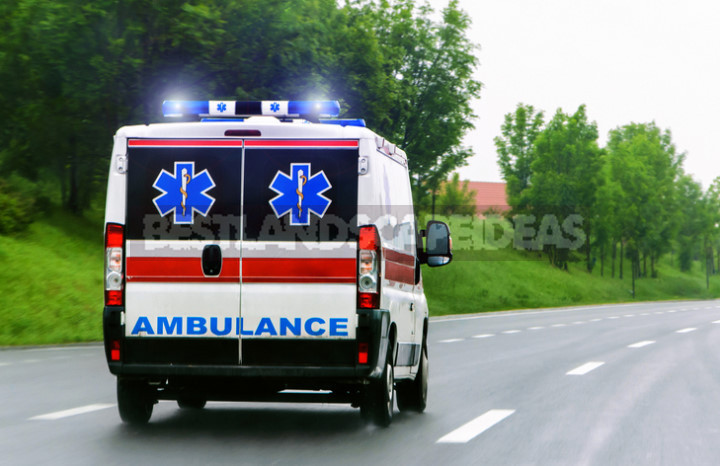
Self-help consists in drinking plenty of salted water, followed by vomiting. You can take 8-10 tablets of activated carbon, which is able to absorb poisons. You can also give the victim jelly or liquid semolina porridge – they will protect the gastric mucosa. If the abdominal pain is very strong, drink should not be given.
In the country always have on hand the phones of the nearest medical institutions, ambulance, Toxicological center of your city.
What means of garden chemistry are the most dangerous
Many are afraid to use chemical fertilizers for plants. But if you strictly follow the recommendations on dosages and terms of their introduction and if you are not going to eat them with a spoon, they are just the least dangerous.
The most dangerous are pesticides – toxic substances for pest control and plant diseases. That is why it is necessary to strictly observe the rules of their application. Remember that you can not handle pesticides plants that eat raw. Berry bushes, strawberries, fruit trees are treated strictly according to the terms – before flowering, so that poisons do not get into the ovaries. Herbicides are less dangerous for humans.
